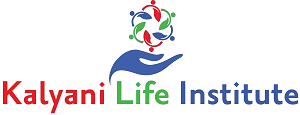
Kalyani Life Institute
কল্যাণী লাইফ ইনস্টিটিউট
Opposite to B-3 Playground,Near 3No Bazar, Kalyani, West Bengal

কল্যাণী লাইফ ইনস্টিটিউট
Opposite to B-3 Playground,Near 3No Bazar, Kalyani, West Bengal
The Open Basic Education (OBE) program at Kalyani Life Institute is designed to provide fundamental education to learners with disabilities, particularly those with Autism Spectrum Disorder (ASD) and other developmental challenges. Offered under the National Institute of Open Schooling (NIOS), the OBE course follows a flexible and adaptive structure, making it ideal for students who may find traditional schooling environments challenging. The OBE program caters to students from primary to pre-secondary levels, aiming to build foundational skills in literacy, numeracy, and life skills.
Three Levels of Learning:
Customized and Flexible Curriculum: The OBE course allows students to progress at their own pace. This flexibility is ideal for students with special needs, enabling them to engage deeply with subjects without the pressure of traditional timelines.
Comprehensive Subject Offerings: The curriculum includes a diverse range of subjects designed to cater to holistic development. Key subjects include:
Focus on Life Skills and Practical Knowledge: Beyond academics, the OBE program integrates essential life skills. These include communication, social interaction, personal hygiene, basic money handling, and safety practices—skills necessary for greater independence.
Inclusive and Supportive Learning Environment: The institute’s dedicated team of special educators and therapists uses methods tailored to each learner’s unique needs, incorporating visual aids, sensory materials, and adaptive teaching techniques.
Parental Involvement and Regular Feedback: Parents are active participants in the OBE journey. Through periodic assessments, meetings, and feedback sessions, parents are kept informed about their child’s progress, with guidance provided on reinforcing learning at home.
Assessment and Certification: Upon completion of each level, students undergo assessments aligned with NIOS standards. Successful students receive certificates from NIOS, which can be a stepping stone for further education or skill development programs.
Kalyani Life Institute welcomes students with varying disabilities into the OBE program. Each application is reviewed to understand the child’s learning needs and customize an appropriate plan. The admissions process includes an initial screening and assessment, followed by the creation of a personalized education plan.
The OBE course at Kalyani Life Institute provides a structured yet flexible educational pathway that is responsive to the diverse learning needs of students with disabilities. By empowering students with foundational knowledge and practical skills, the OBE program helps them achieve greater independence and prepares them for future educational and vocational opportunities.